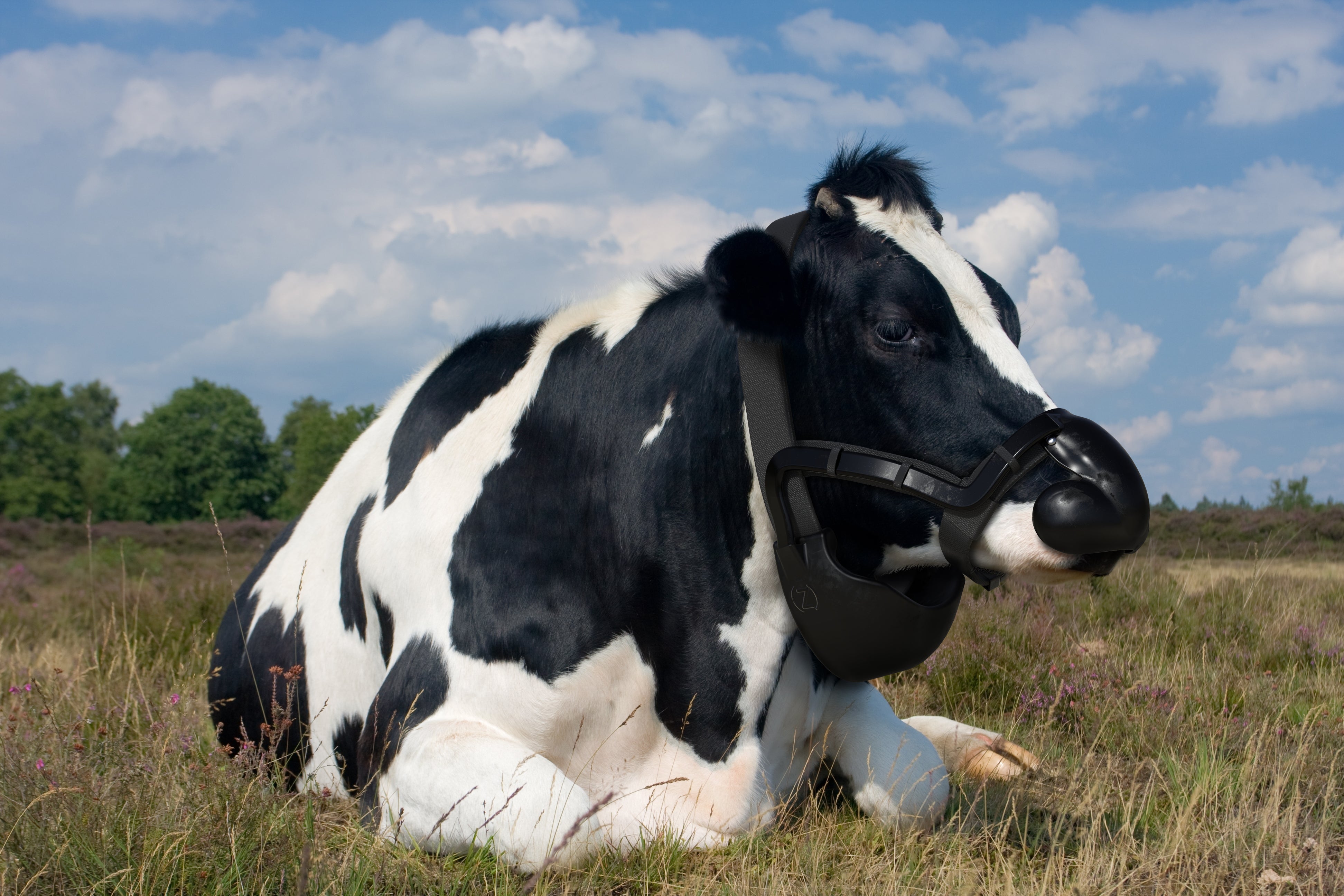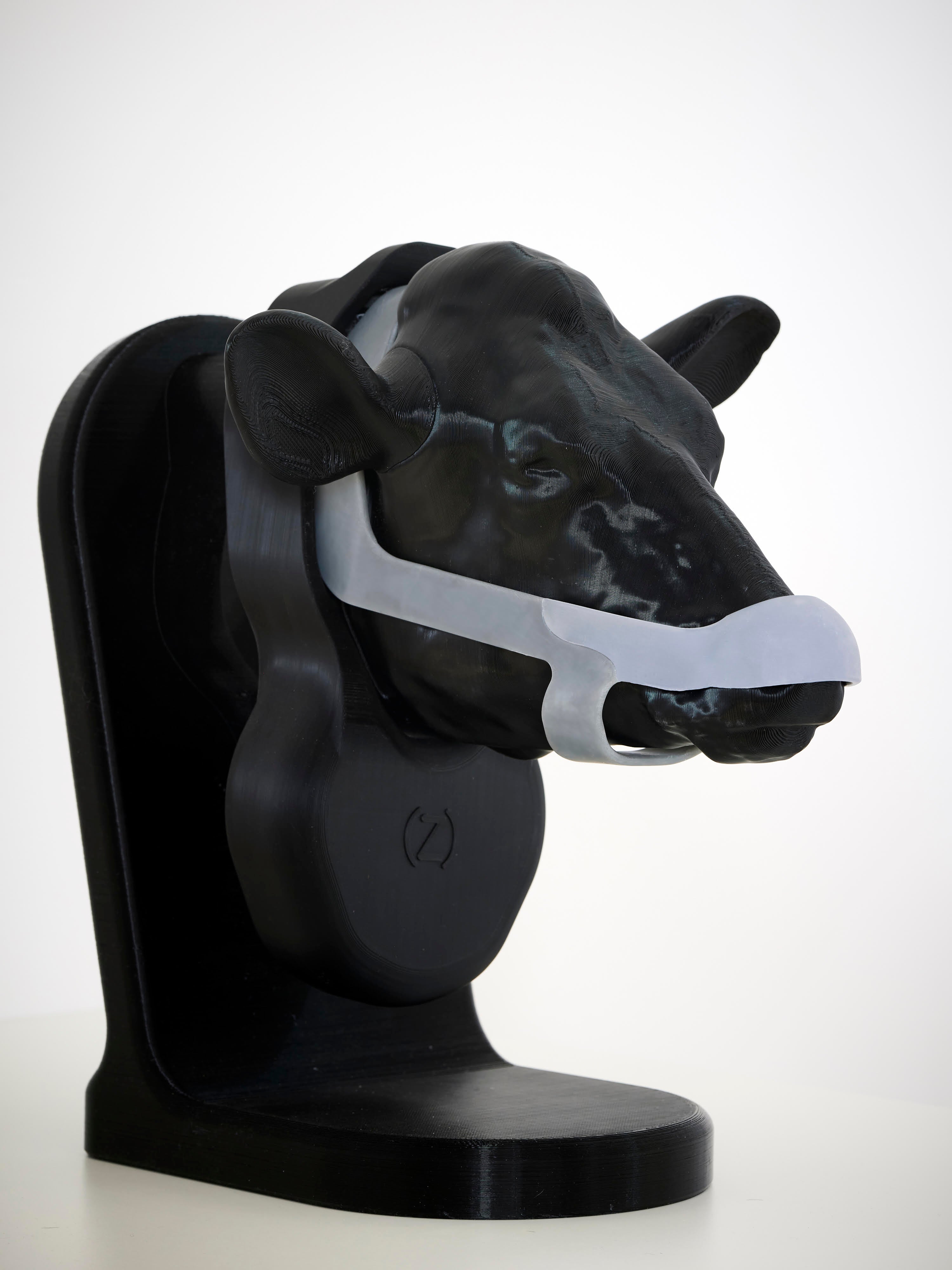Face masks for cows aim to tackle climate crisis by capturing methane from burps
Technology can reduce cattle’s methane output by 53 per cent

Your support helps us to tell the story
From reproductive rights to climate change to Big Tech, The Independent is on the ground when the story is developing. Whether it's investigating the financials of Elon Musk's pro-Trump PAC or producing our latest documentary, 'The A Word', which shines a light on the American women fighting for reproductive rights, we know how important it is to parse out the facts from the messaging.
At such a critical moment in US history, we need reporters on the ground. Your donation allows us to keep sending journalists to speak to both sides of the story.
The Independent is trusted by Americans across the entire political spectrum. And unlike many other quality news outlets, we choose not to lock Americans out of our reporting and analysis with paywalls. We believe quality journalism should be available to everyone, paid for by those who can afford it.
Your support makes all the difference.Cattle are a big problem for our planet. Though huge numbers of humans derive enjoyment from eating beef and the array of options available with milk, we’ve also got to find the space to rear cows and grow food to feed them. Often this involves clearing forest for ranches and to grow crops like soya.
Meanwhile these 1.6 billion cattle are burping out clouds of methane, which is one of the most potent greenhouse gases – methane has more than 80 times the planet-heating power of carbon dioxide during its first 20 years in the atmosphere.
Livestock contribute almost a third of all greenhouse gases to the atmosphere, and cattle are the number one culprits. In total, around a quarter of global warming is driven by methane from various sources of human activity.
But one company, called Zelp, is suggesting cattle may be able to be fitted with headgear which can "neutralise methane" at the source – before it enters the atmosphere.
Using the harnesses, which resemble facemasks, methane exhaled by cattle goes through a catalytic mechanism in which oxidisation takes place, resulting in a combination of CO2 and water vapour.
The design depends on the cattle constantly wearing the masks, which fit over the top of their noses, but leave their mouths free.
It has already been tested on live animals in the UK, Ireland, Argentina and the Netherlands, according to the website.
The company claims that cattle "wearing the device show no change in their behaviour or cortisol levels, and no impact on their feeding, yields or rumination patterns – which are the most sensitive indicators of stress by the animal".
They said: "neutralising methane emissions is the single fastest way to stop climate change".
Using the masks can currently reduce the animals’ methane output by 53 per cent. The company is aiming to reach 60 per cent by next year.

Prince Charles is reportedly supportive of the technology.
The prince was on a panel which selected Zelp as one of four winners of a prize for Royal College of Art students, which is part of the Prince’s Sustainable Markets Initiative.
Sir Jony Ive, the chancellor of the Royal College of Art and a former chief design officer at Apple was also on the judging panel.
This week the Prince and Sir Jony visited an exhibition showcasing the designs at the RCA, with Prince Charles describing the invention as "fascinating".
According to a report in The Telegraph he told the winners: "I can’t tell you how proud I am to be associated with the Royal College of Art, particularly as a result of seeing the remarkable ideas presented by many of them alumni and existing students.
"May I say that it is critical because of the urgency we face in terms of the crisis confronting us in all directions and just how important is what their ideas represent in terms of finding solutions rapidly.
"I can only hope as a result of this and drawing more attention to what you are doing that we will have a better chance of winning this battle in shorter time. I can only wish you every possible success. Many congratulations, marvellous."
The United Nations and the UK government’s independent climate advisors the Climate Change Committee have said people must cut back on meat eating in order to help hit global climate targets.
Join our commenting forum
Join thought-provoking conversations, follow other Independent readers and see their replies
Comments